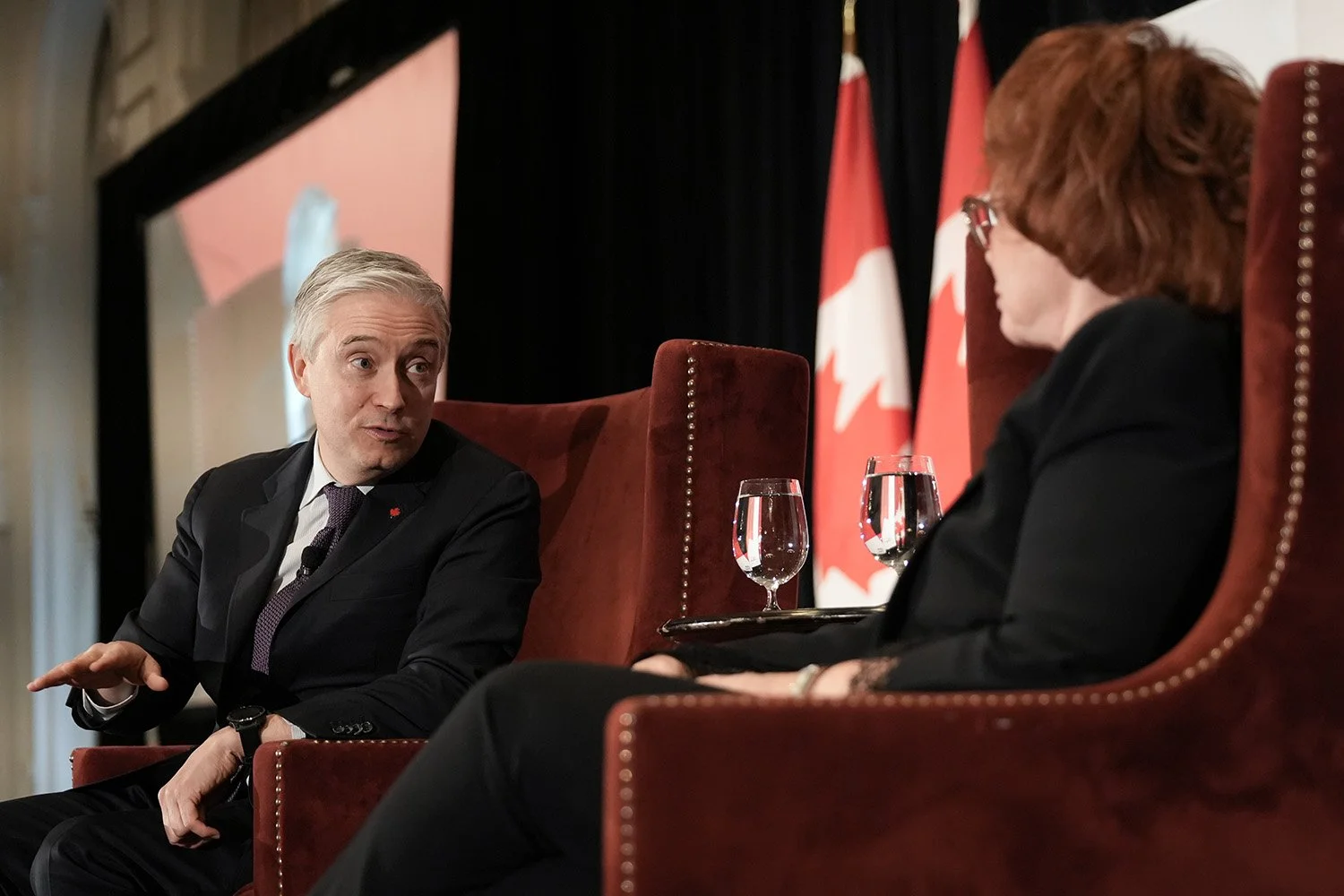Budget 2025: Big spending, but is it transformational?
‘Canada enters this period of transformation from a position of strength. Canada has the lowest net debt-to-GDP ratio in the G7, and the federal debt-to-GDP ratio will remain stable over the Budget horizon. We also have one of the lowest deficits in the G7, and one of the strongest fiscal positions in the world. And we must use this fiscal firepower to make generational investments,’ says Finance Minister François-Philippe Champagne, pictured with Prime Minister Mark Carney. / TWITTER PHOTO
Prime Minister Mark Carney’s first budget “should help reset Canada’s economic course with a necessary pivot from consumption to capacity,” says Rebekah Young, Scotiabank Vice President, Head of Inclusion and Resilience Economics.
The budget Finance Minister François-Philippe Champagne tabled today, was a “credible strategy for a weaker, supply-constrained economy — but delivery is everything and execution risks loom large,” she said in a note to clients.
In a sweeping fiscal plan Champagne charted a five-year, $167.3 billion increase in deficits compared with the previous government’s forecasts, directing tens of billions toward defence, housing and export-focused infrastructure.
Young cautioned that the government “may have over-hyped ‘transformational,’ as the real test will be results that will take time — and this is a start.” She added that “in a world of deficit-heavy peers, composition — not size — should anchor confidence,” noting that “Canada’s fundamentals are decent, but its exposure to U.S. policy risk is acute.”
The government, she said, was right to “keep its debt trajectory stable over the horizon as this is not an environment to test market confidence.” Still, she warned that “Canadians may miss the immediacy of transfer-heavy budgets as there is nothing ‘new’ for households,” adding that “the risk may be a return to complacency — underestimating the volatility ahead and overestimating how long the fiscal runway will hold.”
Trump’s trade war
Carney billed Budget 2025 as a “bold” response to the economic fallout from a trade war launched by U.S. President Donald Trump, which has disrupted Canada’s export-driven economy.
“This budget charts a new course for Canada’s public finances,” Champagne told Parliament. “We will balance day-to-day operating spending with revenues by 2028-29, shifting the budget toward investments that grow the economy.”
The fiscal plan includes an additional $115.2 billion over five years for infrastructure, more than $80 billion for defence, and $13 billion for a new national homebuilding initiative.
Despite the spending surge, Champagne insisted Canada’s fiscal footing remains sound. “We must use this fiscal firepower to make generational investments,” he said, emphasizing that Canada still holds the lowest net debt-to-GDP ratio in the G7.
Derek Holt, Scotiabank Vice President and Head of Capital Markets Economics, said the fiscal strategy was better than he feared.
Manageable budgets
“It keeps deficits within manageable ranges and ends the pattern of providing short-term measures that kept raising the high share of the economy represented by short-term spending,” Holt told Means & Ways. “Instead, it pivots toward medium- and longer-run goals in an attempt to make the economy stronger over time. That approach is long overdue.”
But others were less impressed by the scale and direction of spending.
Kim G.C. Moody, CEO of Moodys Tax, called it “a horrible budget that will cripple our future generations.” He added, “If you’re a fan of big government spending, then this is the budget for you. If you believe huge government intervention into the economy is necessary and good, well, you’ve got the budget of your dreams.”
Moody highlighted what he called “eye-popping” spending increases — $126 billion in new spending and rising public debt charges projected to hit $76.1 billion by 2029–30 — and criticized the government for failing to adjust tax rates or deliver the long-promised corporate tax review.
The Canadian Chamber of Commerce said businesses had waited “a long time for a federal budget” and welcomed the government’s focus on investment and productivity.
“Canada has an urgent need to get back to a growing, productive economy,” Chamber President and CEO Candace Laing said in a statement. “The government has heard business’ call to focus on the economy and has made some tough choices to attract investment.”
Over to you, business
Matthew Holmes, the Chamber’s executive vice-president, said the budget “makes some large expectations on returns,” and warned that “it will be up to businesses to see if this will be enough to spur the level of economic activity, return on investment and capital attraction the government hopes for.”
Market reaction was muted. Canada bonds rallied slightly, and the loonie held near $1.41 to the U.S. dollar. Analysts said the deficits were “roughly in line with expectations.”
Randall Bartlett, deputy chief economist at Desjardins, said the budget “didn’t go far enough to make the transformative impact to the economy and investments they had telegraphed,” but added that markets “are likely to receive this budget well.”
Theo Argitis of the Business Council of Canada called it “more incremental than game-changing,” but said it “moves the needle in the right direction,” especially on infrastructure and critical minerals.
As Young put it, the budget may mark the start of a necessary economic reset, “but whether it’s the budget Canadians — or Parliament — want remains to be seen. “This budget is likely to pass but Canadians (and investors) will want to see results soon.”






